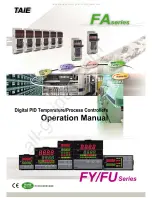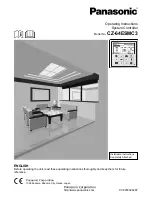
4-4
Float
Float is less affected by temperature changes, but it may also undercharge or gas too much
depending on how much the temperature changes.
The BTS corrects the three charging setpoints noted above by the following values:
• 12 volt battery: –0.030 volts per °C (–0.017 volts per °F)
• 24 volt battery: –0.060 volts per °C (–0.033 volts per °F)
• 48 volt battery: –0.120 volts per °C (–0.067 volts per °F)
Variations in battery temperature can affect charging, battery capacity, and battery life. The
greater the range of battery temperatures, the greater the impact on the battery. For example,
if the temperature falls to 10°C (50°F) this 15°C (27°F) change in temperature will change
the PWM, equalization and float setpoints by 1.80V in a 48V system.
Temperature
12 Volt
24 Volt
48 Volt
50ºC / 122ºF
– 0.75 V
–1.50 V
– 3.00 V
45ºC / 113ºF
– 0.60 V
– 1.20 V
– 2.40 V
40ºC / 104ºF
– 0.45 V
– 0.90 V
– 1.80 V
35ºC / 95ºF
– 0.30 V
– 0.60 V
– 1.20 V
30ºC / 86ºF
– 0.15 V
– 0.30 V
– 0.60 V
25ºC / 77ºF
0 V
0 V
0 V
20ºC / 68ºF
+ 0.15 V
+ 0.30 V
+ 0.60 V
15ºC / 59ºF
+ 0.30 V
+ 0.60 V
+ 1.20 V
10ºC / 50ºF
+ 0.45 V
+ 0.90 V
+ 1.80 V
5ºC / 41ºF
+ 0.60 V
+ 1.20 V
+ 2.40 V
0ºC / 32ºF
+ 0.75 V
+ 1.50 V
+ 3.00 V
Table 4.3 Temperature Compensation
The need for temperature compensation depends on the temperature variations, battery type,
how the system is used, and other factors. If the battery appears to be gassing too much or
not charging enough, an BTS can be added at any time after the system has been installed.
The SunStar will recognize the BTS when the controller is started (powered-up).
4.4 Equalization
Routine equalization cycles are often vital to the performance and life of a battery —
particularly in a solar system. During battery discharge, sulfuric acid is consumed and soft
lead sulfate crystals form on the plates. If the battery remains in a partially discharged
condition, the soft crystals will turn into hard crystals over time. This process, called “lead
sulfation,” causes the crystals to become harder over time and more difficult to convert back
to soft active materials.
Sulfation from chronic undercharging of the battery is the leading cause of battery failures
in solar systems. In addition to reducing the battery capacity, sulfate build-up is the most
common cause of buckling plates and cracked grids. Deep cycle batteries are particularly
susceptible to lead sulfation.
Normal charging of the battery can convert the sulfate back to the soft active material if the
Содержание SS-30C
Страница 1: ......
Страница 29: ...3 5 ...
Страница 30: ...3 6 ...
Страница 50: ...Appendix B ...
Страница 51: ......
















































